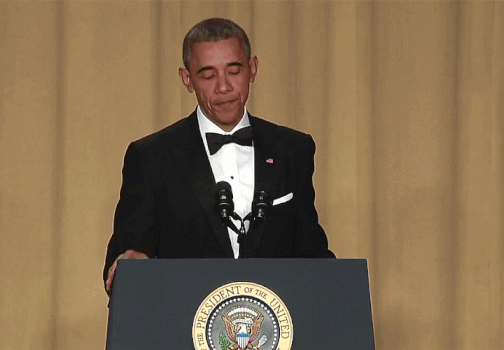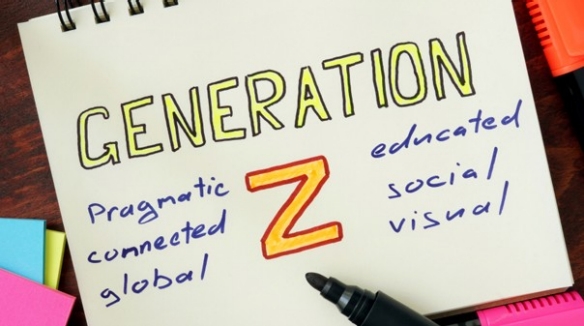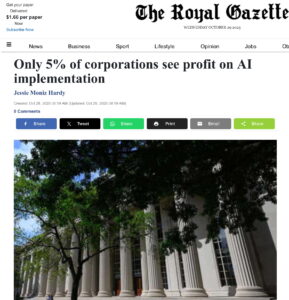Guest post by Connor Blakley (@BlakleySpeaks), a serial entrepreneur, adviser, speaker, and youth marketing/branding strategist. He’s also a teenager and someone whom I mentor. Connor was named as the ¨#1 High School Entrepreneur to Watch in 2016¨” by StartUp Grind
Generation Z, America’s youngest generation (Born in 1996 or later) has never lived in a time when the barrier to real-time information and communication has been nearly nonexistent.
By 2020, Gen Z will account for 40% of all consumers, making it more important now more than ever to successfully connect with and engage this generation to create life long relationships. While many brands invest in Millennial marketing initiatives, with Gen Z, everything is going to get even crazier. This is the generation that will end the ideals of generations.
Researchers say goldfish have a larger attention span than Gen Z (6–8 seconds) and they cannot concentrate for long period of time. YES, this is technically right. But what the data won’t show you is Why. Gen Z just has a fast pace, highly selective and decisive filter that marketers have never seen or had to encounter before. However, once they find something they deem ¨worthy¨ they can become obsessively committed and engaged. This creates a unique opportunity but it also requires a new perspective and approach.
When I am asked, ¨Connor what was the ROI?,¨ the question goes in one ear and out the other. When executives use the acronym ROI, they are using the typical meaning which stands for Return On Investment. However, I think of it in terms of Return On Interaction. Putting resources towards relationships, engagement, and giving value to meaningful interaction, meaningful to them AND you, will mean way more for your brand than any form of traditional advertising, marketing or communication.
The point of all human relationships is connection, and marketing really starts to become effective when word of mouth starts to take place. If the key to a human relationship is a connection, then wouldn’t it make sense to invest in interactions, find connection points and create an authentic relationship?
If your brand can in essence ¨become friends¨ with as many people as you can through interactions, than you not only create brand loyal consumers, but FRIENDS who become ¨zombie loyalists¨. Yes, it is possible for brands to find that connection with people using traditional methods (it has been done for ages). The difference is the value+time given by the brand to invest in the relationship.
Rather than talking AT the consumer to find a connection, talk with them to be most effective.
Brands need to go deeper into the data, and meet Gen Z where they really are.
Don’t try to hard
Relatability is the authenticity of today. A general misconception regarding Gen Z is that they commonly use acronyms like ¨LOL¨, ¨JK¨, ¨WTF¨ , ¨OMG¨ or ¨SMH¨ while texting. When brands use this type of language in an attempt to look trendy it comes off as unauthentic and fake. Now more than ever today’s youth (Gen Z) act and behave like adults. They want to be treated as such.
Instead, brands need to closely pay attention to trends that are on the verge of virality. Finding a unique and funny way to incorporate these in your strategy is a sure fire way to pave a path to virality and forging true connections with Gen Z. Perfect examples of this being executed can be found on Taco Bell’s Twitter account. Not only do they creatively engage with fans, they actively create campaigns around the things they see we care about. Don’t try to hard to be relevant, pay attention to trends, and be creative. Simply listening and paying attention is a simple and a great way to create a relationship.
Rethink Social Media
The impact social media has on Gen Z is unparrareled to any generation before them. For generations health, financial prosperity, and relationships have played pivotal roles in one’s personal happiness. However, according to The Center for Generational Kinetics, nearly %40 of Gen Z says social media has a direct impact on their happiness. In order to effectively connect with Gen Z through social media brands now have to find a way to ¨lift up¨ their Gen Z consumer to make them feel like a hero.
A prime example of this being executed is through Dj Khaled’s Snapchat story. Telling viewers “Baby, you smart! You Loyal! You a genius!,” while also simultaneously preaching simple motivational phrases such as ¨There will be roadblocks, but we will overcome them.” There is a reason brands like Dove and Ciroc have teamed up with Khaled. Aside from having one of the most viewed Snapchat stories on the planet, he has created a loyal community by making viewers feel like the hero.
Prove the Impact
In many ways Gen Z has grown up in a world they only know to be corrupted. They have lived through constant terrorist attacks, a recession, and wars. This this generation is not only worried about the future, but is ready to take action. Sixty percent of Gen Z want their jobs to have an impact on the world, and eighty percent of Gen Z will more often buy a product that has a social or environmental impact. Not only does Gen Z expect brands to have an impact, they expect them to show it.
Companies like Boxed Water have aligned their entire product and brand with a cause they care deeply about. For instance, Boxed Waters slogan that appears on every single product is ¨Boxed Water is Better.¨ Well why? Because not only are you buying water, you’re buying a better earth for everyone. Boxed Water is dedicated to planting one million trees by 2020 and changing the way we think about purchasing bottled water. Give your Gen Z consumer the tools to feel as if they have made an impact that makes the world a better place. Create innovative campaigns that don’t appear for self purpose and add value.\
Leverage Visuals
The average Gen Z consumer sees 200,000 marketing messages before they hit the age of 15. They have naturally learned to quickly decipher through what matters. The key for brands to quickly and effectively connect with Gen Z is to create and curate content that makes them feel comfortable.
Myself, along with brands such as Denny’s, Wendy’s, and Bud Light have found the best way to do this is through GIFs. Below is an example of an extremely viral GIF that was made after Obama ¨dropped the mic¨ after his speech at the White House correspondents dinner. The reason GIFs work so well is because everyone can relate to them. Whether brands use a GIF from a popular movie, recent event, or a popular celebrity, they are something that can be created to relate to everyone. Another reason brands are seeing tremendous results from using GIFs is that they are super short, perfectly aligning with the decision making filter of Gen Z.

Be Real
Honesty, transparency, and authenticity. These are the three traits crucial for brands to implement into the core of their brand. If you truly want to implement these traits, you have to connect with Gen Z on their own terms. Gen Z views brands guilty until proven innocent, so taking the extra step to not only capture their attention, but bring value to interactions is crucial.





Connor, this article is simply brilliant. I loved every word you wrote — truly speaks to my heart and my love of Relationship Marketing (the very subject of one of my own books!!). Well done and kudos to Brian Solis for publishing. Happy to share with my peeps and I look forward to finding out more about you and reading more of your content. 🙂
“Don’t try to hard” it’s “Don’t try too hard”
Repeated grammar error twice in the paragraph.
I agree with Mary and everything she said. This article is a masterpiece.
Great article but PLEASE proofread before publishing!!! You’re killing me with the typos! 🙁
Great article, echoes much of what I’ve uncovered in my own research on Gen Z for our blog at Parisleaf. I love its authenticity in being written by a Z. Thanks, Brian Solis, for publishing.